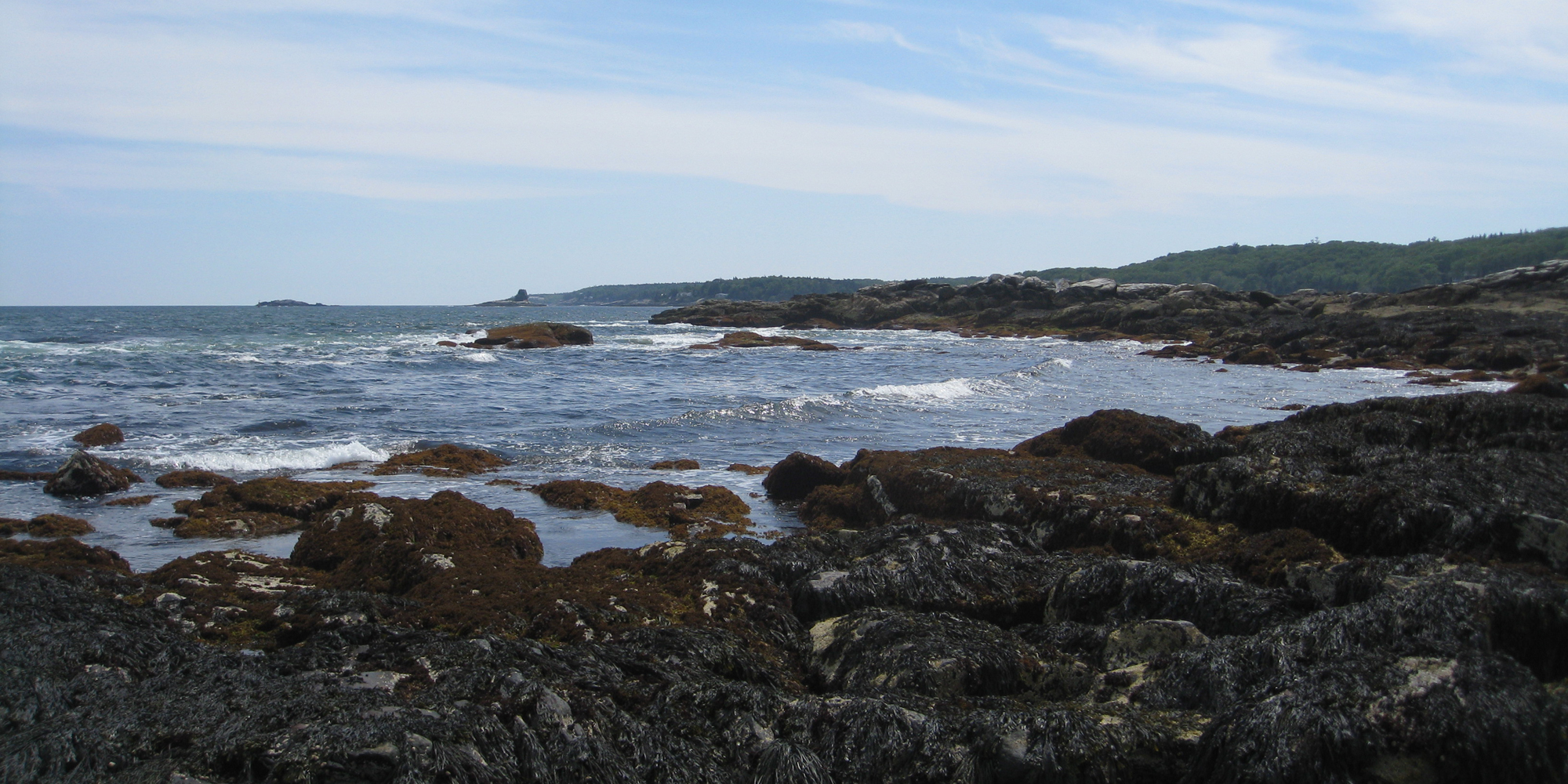As ocean temperatures increase, species range expansions are on the mind of scientists and resource managers, including Marine Science Center graduate student Marissa McMahan. This lobsterwoman turned scientist is devoting her dissertation research to documenting the ecological impacts of Black Sea Bass range expansion into the Gulf of Maine. In support of these efforts, McMahan has launched a crowdfunding science campaign via experiment.com, to help fund her research while also spreading the word about emergent species.
Hailing from a family of Maine lobstermen, McMahan is intimately familiar with the local species in the Gulf of Maine. So she was surprised in 2012 when she and her father began catching Black Sea Bass in their traps. Historically, Black Sea Bass range from Cape Hatteras, NC to Cape Cod, as they cannot tolerate the colder waters of the Gulf of Maine. However, in recently years, fishermen have caught the fish as far north as mid-coast Maine, with a marked increase in sightings in the past two years, likely due to warming ocean waters.
There’s a new fish in town, but is this a bad thing? The verdict is still out, and there are many factors to consider. One fear is that the invader may disrupt local ecology by displacing or consuming commercially important species.
This fear is not unreasonable, as McMahan has documented the territorial and aggressive nature of Black Sea Bass via SCUBA surveys and video monitoring. Additionally, by catching and dissecting the fish McMahan has gained insight into the Black Sea Bass diet, which in Maine consists largely of crustaceans such as crabs, shrimp, and lobster. These data indicate that if sea bass populations continue to increase in Maine, the iconic lobster fishery that sustains the state’s economy could be at risk.
However, the emergent species could possibly benefit fishermen, by providing a new source of income in the Gulf of Maine. Black Sea Bass are highly valued in their native range, selling for $10-12 per pound. These new arrivals may present a lucrative opportunity, especially since overabundance of lobster in recent years has driven lobster prices down to $2-3 per pound. The question is if, and when, will fishermen start to take advantage of this new fishery?
Regardless of the nature of the ecological and economic impacts, it is clear that documenting Black Sea Bass range expansion is necessary to ensure successful management of the new arrival. In addition to her surveys and dissections, McMahan is working with colleague Steven Scyphers to conduct paper surveys of scientists, lobstermen, and resource managers to assess perceptions of the growing sea bass fishery. This survey will allow her to not only assess how these players view sea bass, but also obtain historical data on when they first appeared in the Gulf of Maine.
Further, McMahan is harnessing the power of the fishing industry, working with fishermen to collect sea bass caught as bycatch. The more specimens she collects, the more completely we can understand the ecology of the sea bass to predict its impact on lobsters and other native Gulf of Maine species.
McMahan hopes her work will provide a framework for the monitoring and management of emergent and invasive species. “I’m only studying sea bass right now, but what I’d really like is to test run what I’m doing as an overall model for how to monitor invasive and emergent species,” she said. This type of model will be an essential tool for scientists and managers, as rising ocean temperatures lead to increases in species range expansions.
McMahan’s project is bringing together scientists, fishermen, and resource managers to evaluate the impact of emergent species, and now she needs your help! Research requires funding, and as government and other funding sources are becoming scarce many scientists are turning to crowdfunding as a way to support their research while also sharing their science with the public. If McMahan’s research interests you, head over to experiment.com to learn how you can help!

